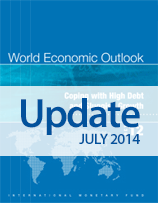Thillaye, R., Kouba, L. & Sachs, A. (2014) “Why Institutions Matter in the Eurozone“, Policy Network Publications, 17 July. Reforming EU Economic Governance The debate about the Eurozone’s future usually centres on a clash between economics and politics. Giving the EU greater oversight powers and more spending capacity is said to be the only viable long run solution, but there is little popular appetite for this option. As a …Read More
What’s in a European Commission President?
Salamone, A. (2014) “What’s in a European Commission President?“, Britain’s Europe Blog, 25 Ιουλίου. The next President of the European Commission faces a number of obstacles to a successful term of office. Political and institutional challenges, ranging from the power of the Council and the Parliament to the difficulty in building unity in the Commission, stand in the way of the President’s goals for the EU. In order to …Read More
Official discussions on Greece’s 5th program review to incept in mid-September: Key items on the agenda
Petropoulou, P. (2014) “Official discussions on Greece’s 5th program review to incept in mid-September: Key items on the agenda“, Eurobank – Greece Macro Monitor, 22 July. This report takes a close look on a number of quantitative targets and structural benchmarks included in the agenda of the 5th review of Greece’s adjustment program, expected to commence in mid-September. It also provides an overview of the progress already made by …Read More
Asset-backed securities: The key to unlocking Europe’s credit markets?
Altomonte, C. & Bussoli, P. (2014) “Asset-backed securities: The key to unlocking Europe’s credit markets?“, Bruegel Institute, 24 July. The European market for asset-backed securities (ABS) has all but closed for business since the start of the economic and financial crisis. ABS (see Box 1) were in fact the first financial assets hit at the onset of the crisis in 2008. The subprime mortgage meltdown caused a deterioration in …Read More
The Real Raw Material of Wealth
Hausmann, R. (2014) “The Real Raw Material of Wealth“, Project Syndicate, 26 July. Poor countries export raw materials such as cocoa, iron ore, and raw diamonds. Rich countries export – often to those same poor countries – more complex products such as chocolate, cars, and jewels. If poor countries want to get rich, they should stop exporting their resources in raw form and concentrate on adding value to them. …Read More
What Does the 1930s’ Experience Tell Us about the Future of the Eurozone?
Crafts, N. (2014) “What Does the 1930s’ Experience Tell Us about the Future of the Eurozone?“. JCMS: Journal of Common Market Studies, 52: 713–727, Ιούλιος. If the eurozone follows the precedent of the 1930s, it will not survive. The attractions of escaping from the gold standard then were massive and they point to a strategy of devalue and default for today’s crisis countries. A fully federal Europe with a banking …Read More
When arm’s length is too far
Beck, Τ., Degryse, H., De Haas, R. & Van Horen, N. (2014) “When arm’s length is too far“, VoxEU Organisation, 25 July. The small and medium-size enterprises (SMEs) were among the most severely affected in the Global Crisis. This column discusses new evidence on how different lending techniques affect lending in bad and good times. Data from 21 countries in central and eastern Europe show that ‘relationship lending’ alleviates …Read More
World Economic Outlook, An Uneven Global Recovery Continues
International Monetary Fund (2014) “World Economic Outlook, An Uneven Global Recovery Continues“, WEO Update, July. The global growth projection for 2014 has been marked down by 0.3 percent to 3.4 percent, reflecting both the legacy of the weak first quarter, particularly in the United States, and a less optimistic outlook for several emerging markets. With somewhat stronger growth expected in some advanced economies next year, the global growth projection …Read More
Progress Towards External Adjustment in the Euro Area Periphery and the Baltics
Shik Kang, J. & Shambaugh C., J. (2014) “Progress Towards External Adjustment in the Euro Area Periphery and the Baltics“, Working Paper No.14/131, International Monetary Fund, 22 July. The euro area periphery countries and the Baltic countries, which had large current account deficits in the run-up to the crisis, needed adjustment of relative prices to achieve both internal and external balances. Thus far, tangible progress has been made through …Read More
Lithuania changes the ECB’s voting system – membership threshold triggers change in the ECB’s Governing Council’s voting system
Merler, S. (2014) “Lithuania changes the ECB’s voting system – membership threshold triggers change in the ECB’s Governing Council’s voting system, which starts rotating“, Bruegel Institute, 25 July. Lithuania will become the 19th member of the Euro area on the 1st of January, following Wednesday’s Council endorsement. The most important part of the story – however – is not that someone is still brave enough to join the Euro …Read More





